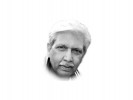The politics of exception
However one may characterise the current political arrangement — hybrid, chaperoned or cooperative — it is unique. Since Imran Khan's PTI was dethroned, a system of governance in the Centre has evolved which mainly addresses the needs. There may be another view of those needs, or whether they can be addressed through another system, but in the genius of those currently holding the reins, the system in vogue is the least abrasive yet most responsive.
At the end of it all, the politicians at the forefront will carry the responsibility for what the system delivers. Democracy has three derivatives: inclusive politics; good governance; and a growing economy. If any of these do not come through, the responsibility will lie squarely on the politicians who remain the face in control.
Consider: Inclusive politics, good governance and a vibrant economy remain the lynchpin of any system of governance — autocratic, patently democratic or quasi-democratic. On it, no one is preventing the system from ensuring delivery. Inclusive politics means many things, even if a political party is kept at bay for being out of favour in perfect convenience to enable unchecked dominance of those who are in power. It will and must include adherence to the Constitution in 'letter and spirit'; just because a side has a dominant control over all levers of political power does not mean it can change the letter of the law and the Constitution, because it can, especially when it defies the spirit.
Sadly, that has been the case in most constitutional tweaking undertaken by the parliament at the behest of the political leadership. It is anything but inclusive. Instead, it is divisive which is a bigger crime, since, rather than repair, it exacerbates fissures in our political........






















 Toi Staff
Toi Staff Sabine Sterk
Sabine Sterk Gideon Levy
Gideon Levy Penny S. Tee
Penny S. Tee Waka Ikeda
Waka Ikeda Mark Travers Ph.d
Mark Travers Ph.d John Nosta
John Nosta Daniel Orenstein
Daniel Orenstein Beth Kuhel
Beth Kuhel
